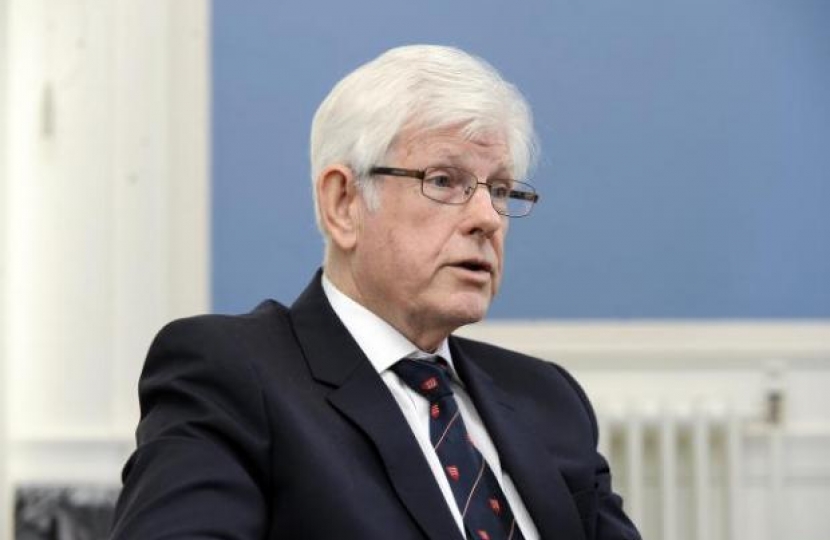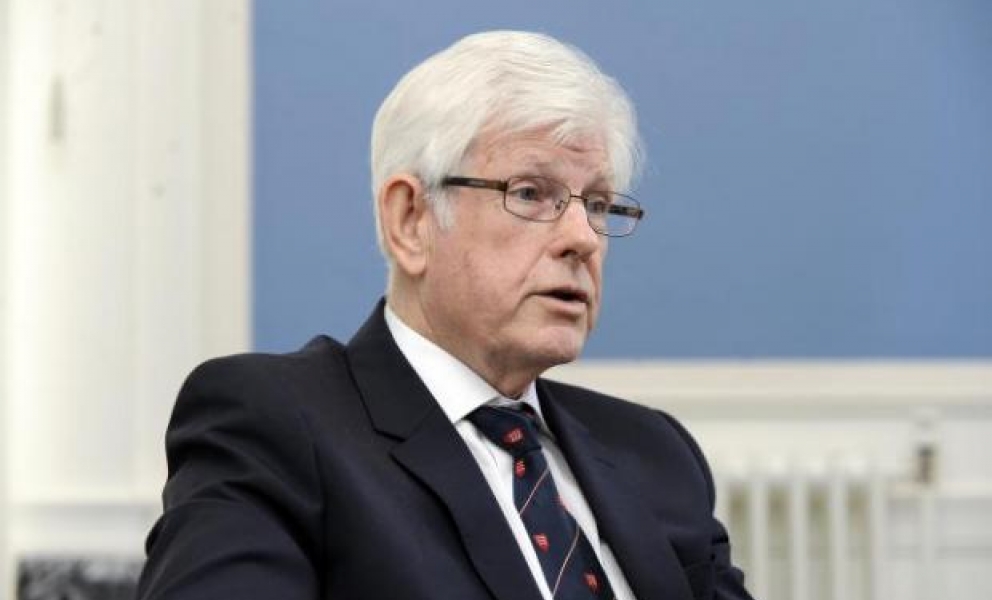
In a highly unusual move, the Leader of Essex County Council, Cllr David Finch, has taken the extraordinary step of publishing a strongly-worded letter, admonishing the Leader of Basildon Borough Council, Labour's Gavin Callaghan, for highly misleading remarks made on Facebook.
Despite the extreme seriousness of the air quality issue to Basildon residents, and Essex County Council putting out a press release a few weeks ago reiterating its own opposition to any form of charging zone in Basildon and giving equal credit to officers at both Essex County and Basildon Borough councils for finding an alternative solution, Basildon Labour chose to mislead residents in a number of untruthful and highly politicised posts to social media.
This follows a familiar narrative pursued by Basildon Labour over several years now, whereby they have sought to scaremonger and mislead residents into thinking that the Conservative Government and Conservative-controlled Essex County Council were somehow in cahoots to impose a 'congestion charge' on the A127, even going so far as to print it on their election leaflets. Other so-called 'independent' councillors have done the same. These are bare-faced lies and, as Councillor Finch outlines in his letter, there has never been any suggestion, from the Government or anywhere else, that congestion charging should be applied to the A127. Even the possibility of a 'Clean Air Charging Zone', which would only have applied to a small area and to certain types of high polluting vehicles, has been consistently opposed by Conservatives in both Basildon and at County Hall, as well as by local Conservative MPs, and have been working hard as part of the Basildon Air Quality Project to find an alternative solution.
Councillor Finch's letter is reproduced below in full.
Dear Cllr Callaghan,
I am writing to express my huge disappointment at the way in which you have attempted to politicise the issue of air quality in Basildon and your decision to publish inaccurate information about the project and this authority, which has served only to cause confusion and undermine the hard work of both Essex County Council and Basildon Borough Council officers in this area.
Let me start by being abundantly clear, as we always have been, that we are strongly opposed to a charging clean air zone in Basildon. We believe the measure would be completely disproportionate and would unfairly impact our smaller businesses in particular. We would never voluntarily introduce a charging clean air zone in the area, and have continually challenge any direction to do so by Government, and the continued challenges facing businesses as a result of the COVID-19 pandemic have only strengthened this view.
Specifically in relation to your Facebook post on the Basildon Borough Community Page on Saturday 14 November, I will highlight a number of major inaccuracies. You state that ‘Basildon Council has been working around the clock to devise a scheme to stop the Conservative Government and Conservative Essex County Council from imposing a congestion charge on the A127’.
The reality is Essex County Council and Basildon Borough Council were jointly directed by Government to address air quality exceedances in Basildon and officers from both authorities have been working together to establish what measures would be needed to bring air quality in areas of Basildon to within legal limits in the shortest possible time. For you to claim that Basildon Council is somehow solely responsible for the preferred option that has been identified is completely wrong and undermines the excellent work of everyone from both authorities involved in the project.
Furthermore, your reference to ‘a congestion charge on the A127’ is entirely inaccurate. There is a clear distinction to be made between a ‘congestion charge’ and a ‘charging clean air zone’, which is what the Government requires all local authorities to use as a benchmark, against which any other proposed options must be assessed. Crucially, a congestion charge does not distinguish between vehicles and aims to reduce overall traffic, whereas a charging clean air zone applies specifically to more polluting vehicles that do not meet certain emission standards. The charging clean air zone that we are using as a benchmark is a class C, meaning that private cars and motorbikes would not have been charged. Affected vehicles would also have been required to pay the charge only if they did not comply with certain Euro emissions standards: Diesel – Euro 6 (most new registrations after 1 September 2015), Petrol – Euro 4 (most new registrations after 1 January 2006). Equally, the charging clean air zone we were directed to consider would not have included the A127 itself, rather it would have been south of the A127 between East Mayne and Upper Mayne, including Cranes Farm Road.
This is not to say we in any way support the implementation of a charging clean air zone, but clearly accuracy is important, particularly at a time when we are engaging with the public about what is already a complex project. To imply that what has been assessed is a ‘congestion charge on the A127’ and exaggerate matters to try to make political capital is completely unacceptable, not to mention highly confusing for the very people with whom we need to engage.
I hope you will now retract your comments and issue an accurate public statement so we can move forward collaboratively and focus on the task in hand – continuing to develop the case for our preferred option, which would reduce people’s exposure to air pollution in Basildon, while positively encouraging residents and businesses to have their say on our proposals.
Yours sincerely,
Cllr David Finch
Leader of Essex County Council
A public engagement brochure and online survey are available via the Essex Highways website at: www.essex.gov.uk/airquality. The survey closes on Sunday, 13 December 2020



